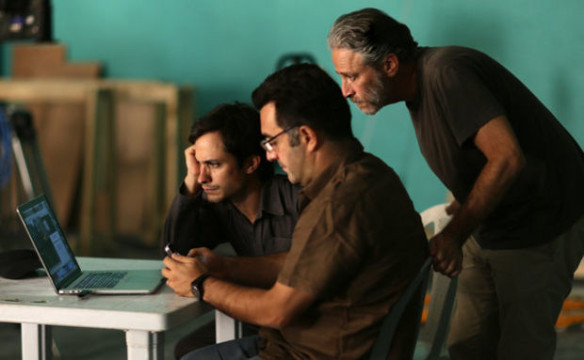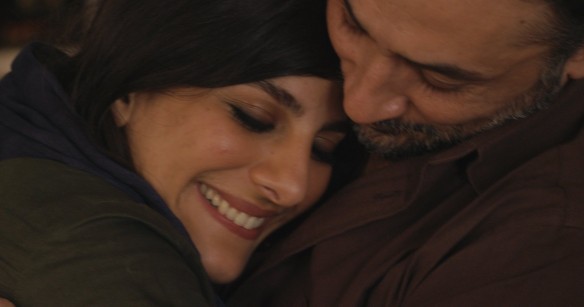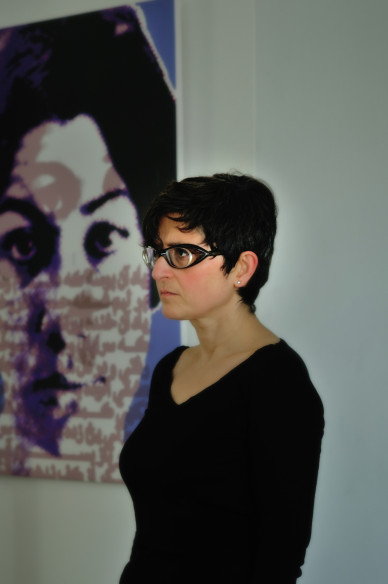From Iran, With Love
By Amna R. Ali | Arts & Culture | Movies | Published 8 years ago
ROSEWATER
Jon Stewart, the wise-cracking television host of The Daily Show, took a three-month hiatus from his show in June 2013 to direct his very first film. Rosewater is based on a true story, adapted from Iranian-CanadianNewsweek journalist, Maziar Bahari’s autobiographical book, Then They Came For Me.
Maziar Bahari went to Iran to cover the 2009 presidential elections between Mahmoud Ahmadinejad and Mir-Hossein Mousavi. It ended in controversy with the government cracking down on thousands of protesters who had taken to the streets in what was called the iconic Green Movement. Bahari was arrested and confined for more than a hundred days in Tehran in June of that year, interrogated and eventually released after a forced confession on television. His crime? Spying for the West.
Rosewater released in the US on November 14 2014, but the media was flush with previews of the film several weeks in advance, as well as interviews with the director and cast. The US/Iran paradigm is not a new subject for American cinema: Ben Affleck’s 2012 Oscar-winning film Argo, about the US hostage crisis in Iran in 1980, was a recent crowd-pleaser echoing the prevalent US rhetoric and symptomatic of its paranoia about Iran. Jon Stewart’s film, though well-intentioned and a faithful adaptation of Bahari’s experience, confirms once again that the depiction of Iran in mainstream media in the West suffers from constant clichés — usually demonising the obvious instead of trying to understand the unfamiliar.
Interestingly, The Daily Show made a foray into Iran while the 2009 elections were going on: “The idea was to show the ridiculous labelling of a country and people,” Stewart said in an interview. The show’s correspondent, Jason Jones, interviewed Bahari in Tehran for a field piece when the journalist was reporting for Newsweek, and this was said to be one of the reasons why Bahari was arrested in Tehran by government authorities, and suspected of being a spy.
“They wanted to incriminate some reformists within the government of Iran through people like me who work with western organisations. I was supposed to be the media conduit between the reformists and foreign intelligence agencies,” said Bahari in an episode of The Daily Show last month dedicated entirely to Rosewater. “It was a very innocent interview. After coming out of that interview I did not think that Jon Stewart would make a film starring Gael Garcia Bernal,” he said on a lighter note. “He is not a stereotypical Hollywood actor who does not know where Iran is on the map.”
 Maziar Bahari was in prison for 118 days where he was subjected to solitary confinement as well as psychological torture by his interrogator, whom he nicknamed ‘Mr Rosewater’ because of his perfume — an iconic Persian scent. “What empowered me was [the idea] that one day I would come out of prison and write that book and share an experience that is happening to journalists all around the world, not just in Iran.”
Maziar Bahari was in prison for 118 days where he was subjected to solitary confinement as well as psychological torture by his interrogator, whom he nicknamed ‘Mr Rosewater’ because of his perfume — an iconic Persian scent. “What empowered me was [the idea] that one day I would come out of prison and write that book and share an experience that is happening to journalists all around the world, not just in Iran.”
Bahari’s father was imprisoned by the Shah in the ’50s and his sister by Ayatollah Khomeini in the ’80s. “My family wants to have a more democratic Iran,” he said on The Daily Show. “But of course, the government is happy with the status quo and does not want to have any kind of change.”
Maziar Bahari’s experience has clearly garnered attention via Stewart’s film, and the depiction of his incarceration is truthful and touching. “I had an innate connection with this issue,” said Gael Garcia Bernal, who is from Mexico, where similar incarcerations take place. Bernal, obviously Latin in looks and intonation, brings his undeniable charm to the film. But he is clearly not Iranian. We are also told nothing new about modern-day Iran. Bahari’s interrogator is symbolic of a closed-minded country — we know that — but we rarely see the revolution on the streets, nor do we find out what the youth out there are feeling or thinking. The prison cell could be in Tbilisi, Georgia, in Chechnya, or in Islamabad. Bahari’s mother, played by the stunning and thankfully authentic Shohreh Aghdashloo, is possibly the most Iranian element in the film.
The film’s US release came at an interesting time in US/Iran relations, as negotiators from both countries were attempting to meet the November 24 deadline for a nuclear agreement.
The film had its world premiere at the Toronto International Film Festival (TIFF) in September this year, where Jon Stewart and Maziar Bahari were both present.

RED ROSE
Also in the international line-up at the Toronto International Film Festival 2014, Sepideh Farsi’s Red Rose puts an entirely different spin on the 2009 elections, choosing to tell a very personal story against a very political backdrop.
Red Rose has received accolades at film festivals around the world, including Toronto, Haifa, Warsaw and Chicago. The 89-minute, 600K budget film was shot with Iranian actors, a Greek crew, in Athens. Filmed entirely in one apartment, the film is mixed with archived footage from YouTube, which was uploaded from Tehran during and after the volatile 2009 protests.
Red Rose is the story of an encounter between Sara (Mina Kavani), a young activist, and Ali (Vassilis Koukalani), an older man whose apartment she takes refuge in from the mayhem on the streets.
Director Sepideh Farsi had a moving tale to tell when I met her at TIFF in September. Her personal odyssey is entirely linked with this film. Farsi had left Iran and moved to Paris after college, and the very last time she was in Iran was a week before the elections in 2009. When she left this time, she instinctively felt she wouldn’t be going back. Now, five years later, after filming Red Rose, neither she nor her cast can ever return to Iran. “It was difficult for me to find good actors who would accept not to go back. It was a big decision, a big step. My parents are in Iran, and I hope that they will not get hindered or troubled by me.” By the time Farsi made Red Rose,both her lead stars, Vassilis Koukalani who is half-Greek and half-Iranian and Mina Kavani who lives in France, were willing to take the risk for art’s sake and give up Iran.
Farsi’s 2009 documentary, Tehran Without Permission, was shot with a mobile phone surreptitiously in Tehran in the months leading up to the 2009 Iranian presidential election, recording life around the city in a collage-like compendium. This is when the filmmaker took a strong stand for her cinema, attending film festivals and rallies to garner international attention, realising her beliefs would get her into trouble with the Iranian authorities. “We have a position as filmmakers and artists that we can do things differently,” she says. “When things started moving in 2009, I started to speak up and speak out. I decided not to be careful and go for it.” Her political convictions were also glued to the desire for change shared with the proponents of the Green Movement. “We voted for Mir-Hossein Mousavi, even though we didn’t believe in him politically. We though if we had enough numbers — three million people came out in Tehran — things would change.”
Red Rose is constructed around the encounter of Ali and Sara, a brave new relationship which throws caution to the winds. “In Iran, you can’t even touch hands in a film; any kind of explicit intimacy is totally taboo,” says Farsi, who takes risks with the political as well as the personal. Iranian art-house cinema has always implied, not really shown, the physical aspect of the human relationship. Sara, the very political heroine, carries out a social media campaign on Twitter from Ali’s apartment, as peaceful protesters who were not armed are shot at and run over at rallies which Farsi’s footage reveals in the film. The filmmaker also implies that students were killed at Tehran University, when the government crackdown took place.
 Farsi got all the footage for Red Rose from the internet, mostly anonymously. “When the elections happened, within 24-hours the authorities had asked all foreign journalists to leave. For two days there was no more official reporting of anything, but citizens started filming and sending out films and images. Links were put up online, linking Iran to the Diaspora activists around the world, especially Canada and America. “I have at least 50 hours of footage and information taken from these links,” says Farsi.
Farsi got all the footage for Red Rose from the internet, mostly anonymously. “When the elections happened, within 24-hours the authorities had asked all foreign journalists to leave. For two days there was no more official reporting of anything, but citizens started filming and sending out films and images. Links were put up online, linking Iran to the Diaspora activists around the world, especially Canada and America. “I have at least 50 hours of footage and information taken from these links,” says Farsi.
To give her film a homogenous feel, Farsi gave the footage a special look and aesthetic treatment. The rest of the shooting took place in Athens, since she couldn’t film in Iran, and she didn’t want to film in a studio. “Athens for some weird reason has something in common with Tehran. The sounds of the city, the light, the way people are, the birds; all these little details that build up together to make something believable. Part of the city reminds me of my childhood areas in Tehran. I wanted to make this film very authentic and we were very careful to get all the details right; cigarettes, food, Iranian home décor, despite the fact that the whole story was indoors.”
Sepideh Farsi is currently on the international festival circuit promoting Red Rose. Her brave decision to make this film, despite the consequences, is a story in itself. Her nostalgia about Iran and what she has left behind permeates her film, making it deeply touching but not overly sentimental.
After watching both films, meeting one of the directors, and hearing repeated interviews of Jon Stewart as his film makes a huge splash in the US, one can safely say that it was in Red Rose that nuanced and authentic depictions of Iran were seen. Despite the good intentions of The Daily Show host, the western depiction of Iran continues to be dark, morbid and, often, off-key. My advice to them: Let’s humanise, not constantly undermine.
The writer is a former assistant editor at Newsline


